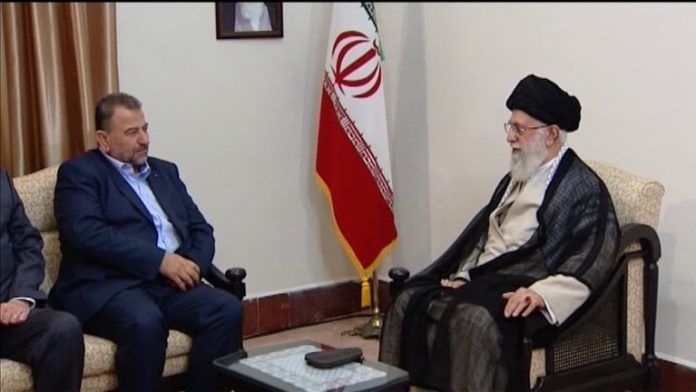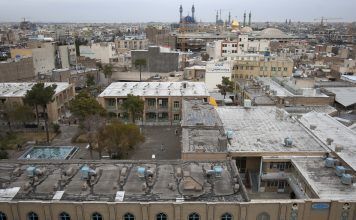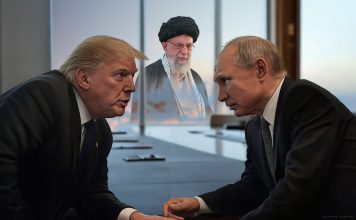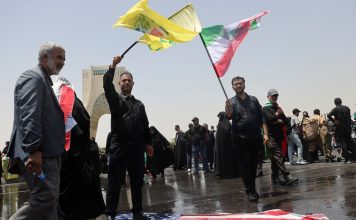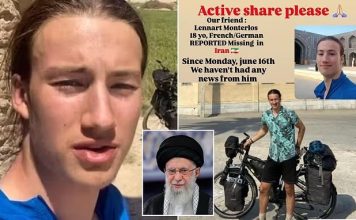By Ahmad Rafat
Israel has said that its ground offensive will destroy Hamas in the Gaza Strip. While Israel will most likely win the military war against Hamas, it has no clear plan for administering the decimated Palestinian territory.
Israel’s current military action against Hamas, codenamed “Swords of Iron,” differs from its previous clashes with the group. Israel has mobilized 360,000 reservists in response to Hamas’s attack in the country’s south, continually bombing that region.
The most severe conflict escalation occurred on Oct. 7 when Hamas attacked Israel, killing more than 1,400 people, mostly civilians. Some 3,700 Palestinians, mostly civilians, have died in Gaza as a result of Israeli retaliation.
Israel has said it plans to “wipe out” the Hamas infrastructure in Gaza, even if it results in civilian casualties. Israel’s plans include forcing most Gaza residents to move to the Egyptian border so that it can bomb all underground tunnels constructed by Hamas in previous years to attack Israel. The plan aims to paralyze Hamas and Islamic Jihad.
Israeli officials have admitted that they do not know what will happen to Gaza after the war has ended or who will administer the strip, which is a serious concern for Israel’s Western allies, including the U.S.
ANALYSIS: Islamic Republic’s Quandary: How to Stay Out of Israel’s War on Hamas
In their recent visit to Israel, U.S. Secretary of State Antony Blinken and U.S. Defense Secretary Lloyd Austin highlighted the need for a clear postwar plan for Gaza. Arab countries are also concerned about Israel’s lack of a coherent plan for Gaza’s future, which is home to 2.3 million Palestinians and has been administered by Hamas since 2007.
According to sources within the Palestine Red Crescent Society in Gaza, at least 3,500 Palestinians have died during the Israeli air strikes, one-third of whom have been children. The number of casualties in the recent conflict exceeds all those killed in previous clashes between Israel and Hamas.
Most Palestinians do not support Hamas. The group does not represent the Palestinian people. That is why Western leaders are pressuring Prime Minister Benjamin Netanyahu and his cabinet — which has faced anti-government protests in Israel in recent months — to use a proportionate response and draft a long-term plan for Gaza before launching a massive ground offensive.
Lack of confidence in Gaza’s future and the postwar situation worries Israelis more than the West and Arab countries.
Israel has clashed with Hamas three times in the past: in 2008, 2012, and 2014. It was involved in two limited ground battles with the group. Less than 4,000 Palestinians and 400 Israelis died in those three conflicts. However, Israeli officials never promised to “wipe out” Hamas until now.
[aesop_image img=”https://kayhanlife.com/wp-content/uploads/2023/09/2023-08-02T182913Z_1677101122_RC2UF2AZ3A7L_RTRMADP_3_IRAN-NAVY.jpg” panorama=”off” credit=”Members of the Islamic Revolution Guards Corps (IRGC) navy participate in an exercise in Abu Musa Island, in this picture obtained on August 2, 2023. REUTERS./” align=”center” lightbox=”on” captionsrc=”custom” captionposition=”left” revealfx=”off” overlay_revealfx=”off”]
Israel Accuses Iran of Using Civilian Ships As ‘Floating Terror Bases’
Many worry that the current war could spread beyond Gaza. The possibility of Lebanese Hezbollah and its sponsor, the Islamic Republic of Iran, getting involved in the war is a nightmare scenario for the regional countries and the West. Except for Iran and its proxies, no other groups or country has threatened to expand the war.
Besides Hezbollah, the Islamic Republic can order dozens of militias and terrorist groups under its control in Gaza, the West Bank, Syria, and Iraq to fight alongside Hamas.
Iranian Foreign Minister Hossein-Amir Abdollahian has threatened a “massive and decisive response” to any Israeli ground offensive in Gaza.
Arab and Western leaders have been traveling to various capitals, hoping to dissuade Israel from launching its ground offensive, which could inflict wholesale punishment on Gaza residents. Many could die because of such a military action, which could spark massive unrest in Arab countries.
The war may weaken Hamas in the long run, but the group still controls Gaza for now. Previous meetings between Israeli officials and the Palestinian National Authority (PNA) that governs the West Bank and its President Mahmoud Abbas yielded no results and enabled Israel to continue building settlements. The PNA was forced to hand over the control of Gaza to Hamas in 2007.
Many doubt that the PNA can administer Gaza even if Hamas is defeated. Regional countries are not confident that efforts to create a humanitarian corridor, allowing Palestinian civilians a safe passage out of Gaza if Israel proceeded with its ground assault, would be successful.
Concerns about Gaza’s future could spark another wave of refugees and a humanitarian crisis, not dissimilar to the situation after the creation of the state of Israel in 1948 or the Arab-Israeli War in 1967, which forced millions of Palestinians to head for Arab countries, many of whom are still homeless and live in refugee camps.

